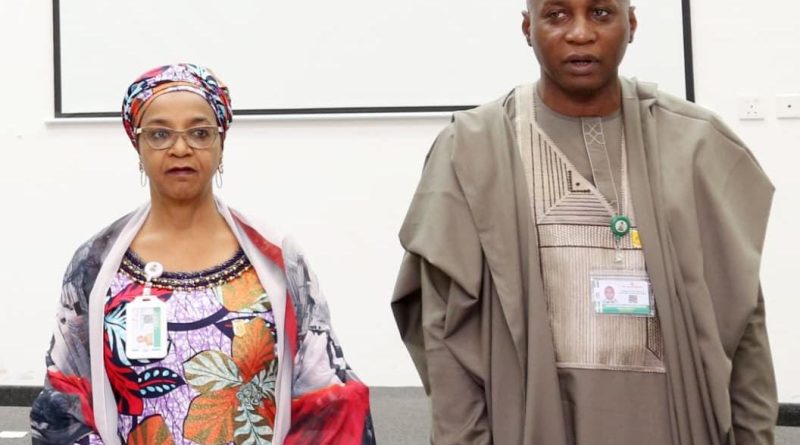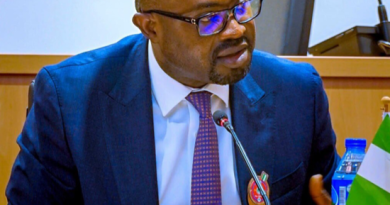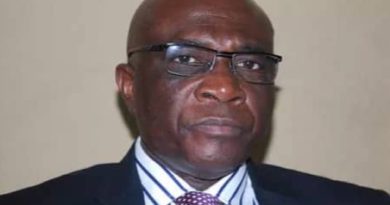NIPSS Cybersecurity And Public Truth,By Mukhtar Ya’u Madobi
“If ordinary citizens are expected to obey the law, senior officials should set the highest example. Failure to honour FCID invitations not only undermines the authority of law enforcement but also creates an impression of attempted obstruction”
The unfolding controversy involving senior officials of the National Institute for Policy and Strategic Studies (NIPSS) and PRNigeria publisher, Mallam Yushau A. Shuaib, raises urgent questions about institutional accountability, ethical communication, and the sanctity of digital privacy in Nigeria’s public sector. What began as a petition alleging the unauthorized interception of a private editorial email has now evolved into a test of integrity for one of the country’s most revered policy institutions.
A report published by Daily Trust on November 3, 2025, revealed that three senior NIPSS officials—Rear Admiral Abubakar Abdullahi Mustapha, recently deployed to the Western Naval Command as Flag Officer Commanding (FOC); Barrister Nima Salman Mann; and Professor Elias Wahab—did not honour an invitation from the Force Criminal Investigation Department (FCID) regarding a petition submitted by Shuaib. The petition concerns a confidential email belonging to PRNigeria which, according to him, was never shared with NIPSS officials. Yet the email somehow emerged as an attachment in a query issued to him by the institution.
This development raises a troubling and obvious question: If the email was never shared, how did it appear in official institutional documents? The implication is that someone, somewhere, gained unauthorized access to internal editorial communications of a media organization that routinely handles sensitive security, intelligence, and fact-checking information. If proven, this would constitute a violation of the Cybercrime (Prohibition, Prevention, etc.) Act, 2015, particularly the provisions that prohibit the unlawful interception, extraction, or use of electronic data.
Equally disturbing is the initial public response from NIPSS. The Head of its Public Affairs Department, Professor Sola Adeyanju—a respected scholar of strategic communication—told journalists that NIPSS never received the FCID invitation, and even went as far as implying that the official stamp on the letter may have been cloned. This was not merely a denial but an attempt to cast doubt on the authenticity of an official police document.
However, when the Solacebase, another independent media insisted there was incontrovertible proof of delivery—showing the letter had been stamped at the NIPSS headquarters in Kuru, near Jos—the spokesperson reversed his statement. Within hours, the narrative shifted: the letter had indeed been received, and the Director-General had already spoken with the DIG in charge of the FCID, seeking additional time to respond.
Such contradiction is not a harmless miscommunication. For an institution that trains Nigeria’s highest-level policymakers and senior military and paramilitary officers, this misstep represents a serious blow to its credibility. Ambiguity in public communication from such an institution suggests one of two things: a breakdown in internal information flow, or an attempt—whether intentional or inadvertent—to influence public perception without verifying facts. Either scenario is problematic.
The matter took another dimension when it was alleged that the NIPSS officials’ refusal to honour the invitation may be connected to the fact that the FCID boss, Deputy Inspector-General (DIG) Sadiq Idris Abubakar, is himself a member of the National Institute (mni), the same prestigious alumni body to which two of the accused officials belong. Critics questioned whether institutional fraternity was being weaponized to quietly defuse the matter.
In response, FCID spokesperson, Funmi Eguajoje, dispelled the insinuation, describing it as unfounded. She requested a brief moment to verify, and within hours confirmed that the three officials had indeed requested more time to appear for questioning, providing a specific date within the month to honour the invitation.
This clarification was needed, but it came after significant public confusion—confusion worsened by conflicting statements from NIPSS itself. For institutions that rely heavily on public trust, accuracy in communication is not optional. Once mistrust sets in, rebuilding confidence becomes difficult and time-consuming.
At the heart of Shuaib’s petition is an issue far bigger than institutional embarrassment: the sanctity of digital privacy.
PRNigeria is a media organization known for its credible reporting on national security, strategic communication, and crisis response. Its editorial emails often contain sensitive information, confidential sources, or early drafts of investigative content. The idea that such a communication could be intercepted—without authorization and without the knowledge of the sender—should alarm not only journalists but every stakeholder in Nigeria’s democratic process.
Digital privacy is not merely a convenience; it is a constitutional guarantee connected to press freedom. If editorial emails can be accessed and exploited without consent, then no journalist, researcher, or civil society organization is safe from institutional overreach.
Another significant aspect of the unfolding saga is the refusal—or delay—by senior officials to honour a police invitation. In a democratic society governed by the rule of law, compliance with lawful directives is not voluntary, especially for public officials. The integrity of governance collapses when those entrusted with authority treat lawful inquiry as optional.
If ordinary citizens are expected to obey the law, senior officials should set the highest example. Failure to honour FCID invitations not only undermines the authority of law enforcement but also creates an impression of attempted obstruction.
It is reassuring that NIPSS leadership has now sought additional time and pledged cooperation. However, cooperation must be accompanied by transparency and accountability. Institutions earn public trust not by avoiding scrutiny but by submitting to it confidently and openly.
This controversy also offers a profound lesson for public relations professionals, communication officers, and students of media practice.
Public relations is not a tool for distortion or spontaneous spin. It is a discipline rooted in truth, verification, and responsible messaging. When a spokesperson issues a statement that contradicts verifiable facts—and later retracts under media pressure—it undermines the credibility of both the messenger and the institution.
For a spokesperson who teaches strategic communication, such an inconsistency sends the wrong signal to students and practitioners who look up to NIPSS as a citadel of best practices in public leadership.
This matter is no longer about a single intercepted email or an accidental breach. It is now about the integrity of NIPSS, the moral authority of its leadership, and the confidence Nigerians place in institutions responsible for shaping national policy direction.
The outcome of this process—legally, ethically, and reputationally—will shape how Nigerians perceive public institutions in the digital age.
The NIPSS controversy is a stark reminder that truth is not optional, transparency is not negotiable, and accountability is not selective. Nigeria cannot afford to lose confidence in its leading policy institutions, especially at a time when national development relies heavily on integrity in governance and trust in public leadership.
Mukhtar Yau Madobi is a Research Fellow at the Centre for Crisis Communication (CCC), Abuja.




